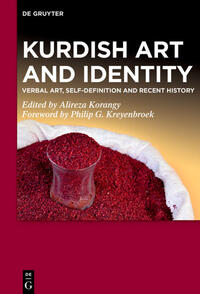
Folklore has been a phenomenon based on nostalgic and autochthonous nuances conveyed with a story-telling technique with a penchant for over-playing and nationalistic pomp and circumstance, often with significant consequences for societal, poetic, and cultural areas. These papers highlight challenges that have an outreaching relationship to the regional, rhetorical, and trans-rhetorical devices and manners in Kurdish folklore, which subscribes to an ironic sense of hope all the while issuing an appeal for a largely unaccomplished nationhood, simultaneously insisting on a linguistic solidarity. In a folkloric literature that has an overarching theory of poetics – perhaps even trans-figurative cognitive poetics due to the multi-faceted nature of its application and the complexity of its linguistic structure – the relationship of man (and less frequently woman) with others takes center stage in many of the folkloric creations. Arts are not figurative representations of the real in the Kurdish world; they are the real.